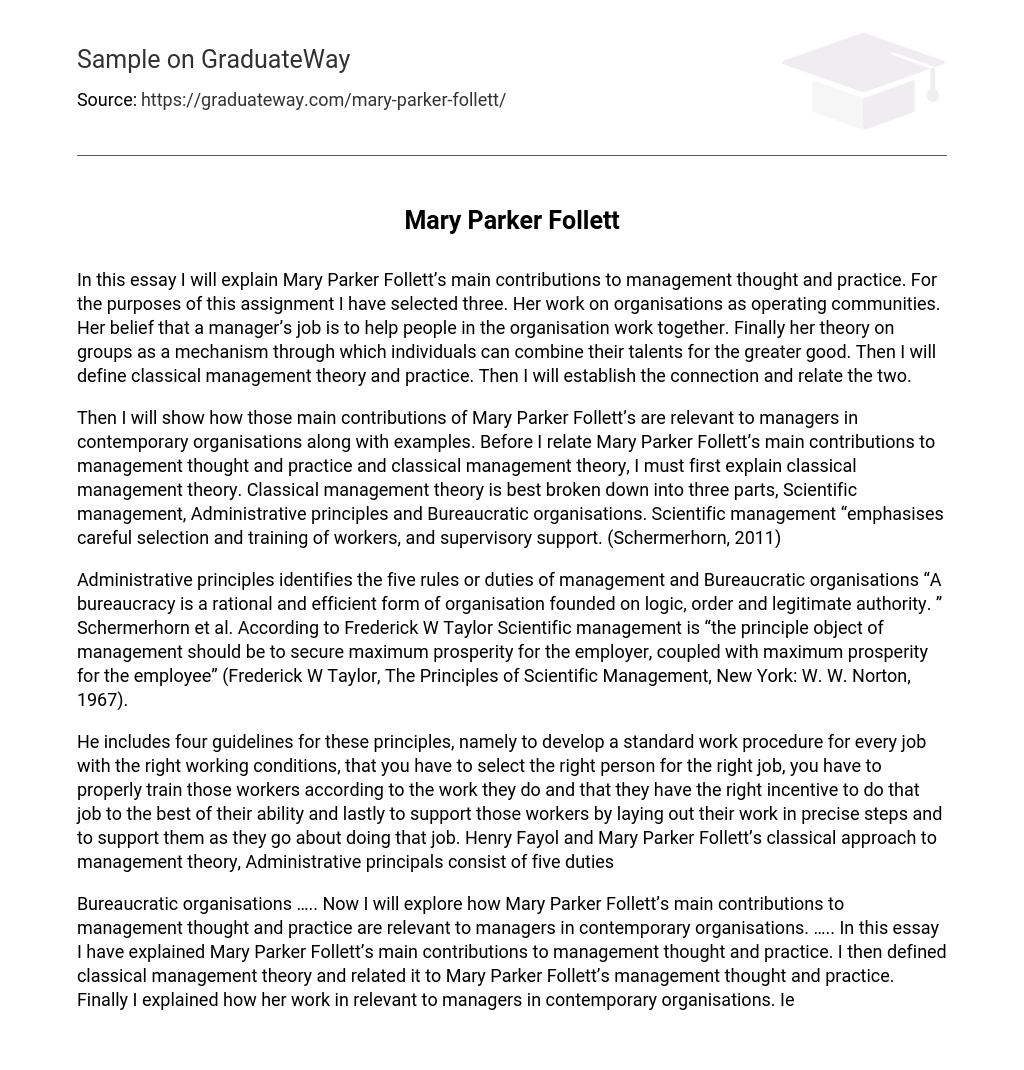This essay will focus on Mary Parker Follett’s main contributions to management thought and practice. Specifically, it will explore three key areas: her ideas about organizations as functional communities, her belief in managers as facilitators of collaboration within organizations, and her theory on the potential of groups to utilize individual talents for overall improvement.
Firstly, the text will provide a definition of classical management theory and discuss its application. Next, it will explore the connection between classical management theory and the main contributions of Mary Parker Follett. It will also illustrate how Follett’s ideas remain relevant to contemporary managers in various organizations through the use of examples. However, before delving into Follett’s contributions and their relationship with classical management theory, it is necessary to explain the key components of classical management theory, which include Scientific management, Administrative principles, and Bureaucratic organizations. Scientific management focuses on the careful selection and training of workers, as well as providing supervisory support (Schermerhorn, 2011).
According to the authors Schermerhorn et al, administrative principles establish the five rules or duties of management in bureaucratic organizations. These organizations are described as rational and efficient, based on logic, order, and legitimate authority. Additionally, Frederick W Taylor’s theory of Scientific Management states that management aims to achieve maximum prosperity for both employers and employees (Frederick W Taylor, The Principles of Scientific Management, New York: W. W. Norton, 1967).
In order to achieve optimal performance, implementing four key principles is suggested. The first principle involves developing a standard procedure for each task, considering the appropriate working conditions. The second principle emphasizes selecting individuals who are best suited for each job. The third principle highlights the importance of providing adequate training that aligns with the specific job requirements. Lastly, it is crucial to motivate and incentivize workers so they can perform their tasks to the best of their abilities. Additionally, supporting employees by clearly outlining their responsibilities and offering assistance throughout their work is essential.





